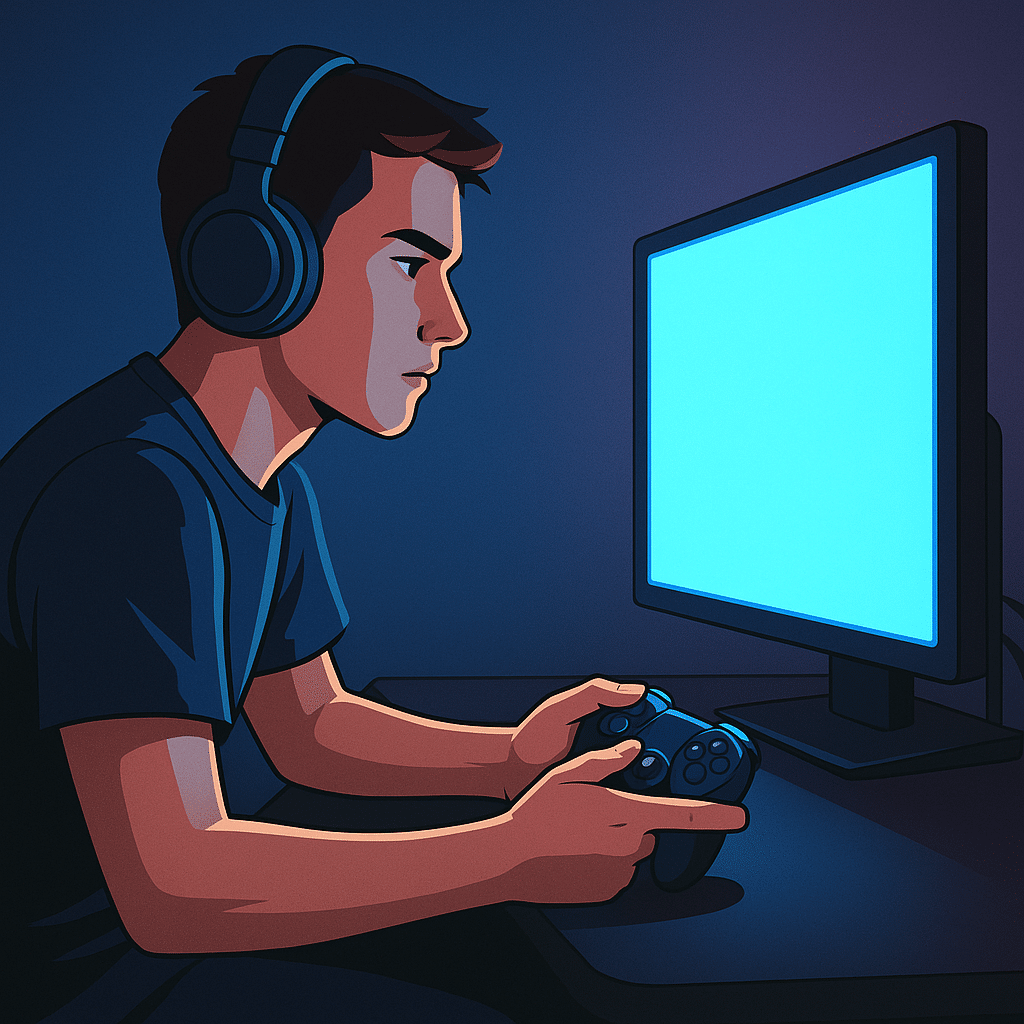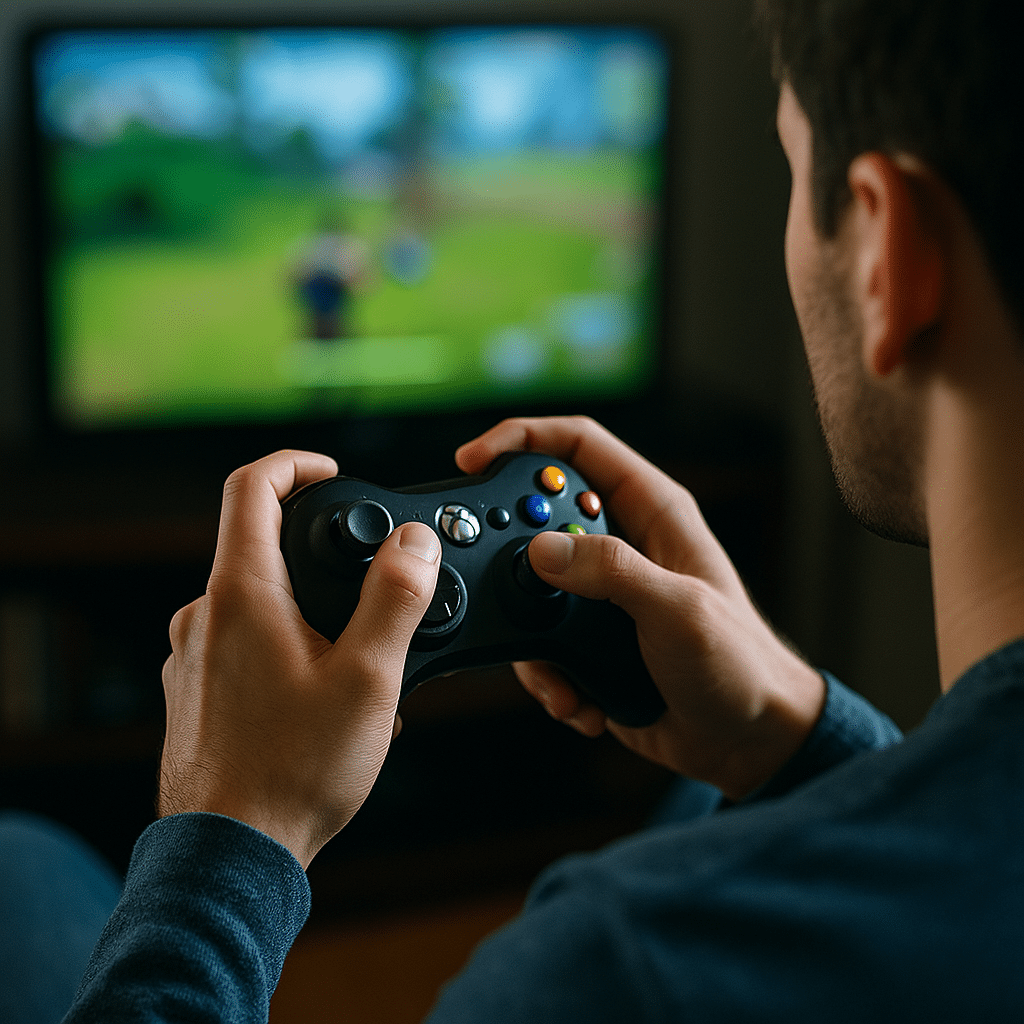The Psychology of Video Games: How Gaming Impacts the Brain
Video games engage more than just thumbs – they have measurable effects on the brain. The psychology of gaming examines how gaming influences cognition, behavior, and emotion. Researchers have found both positive and negative impacts: games can sharpen attention and problem-solving skills, but excessive gaming can contribute to addiction or stress. In esports psychology, understanding gaming’s mental effects helps players perform better. This article delves into how gaming changes the brain and mind, covering addiction, cognitive skills, mental health, and competitive gaming psychology.
Cognitive Benefits of Gaming
Research shows that playing video games can improve certain cognitive skills. Gamers often develop better spatial awareness, multitasking, and hand-eye coordination. For example, a study funded by the NIH found that children who played video games 3+ hours per day performed faster on cognitive tests (impulse control, memory tasks) and showed greater brain activity in attention-related regions. These games demand focus and quick decisions, effectively training the brain. Puzzle games, strategy games, and even action games can boost problem-solving and visual processing skills. In essence, video game psychology indicates that moderate gaming can sharpen learning and brain speed.
Gaming and the Brain: What Studies Say
Scientists use brain scans to see gaming’s impact. The NIH-backed study above reported that heavy gamers had higher neural activity in memory and attention networks. On the flip side, some measures also rose for attention problems and depression scores in those who played very long, hinting at downsides. Other research suggests that gaming can change dopamine pathways (reward centers), similar to other engaging activities. Notably, specially designed “therapeutic” games have been tested: Johns Hopkins reviewed gamified ADHD and depression apps and found modest symptom improvement. This shows games can have intentional mental health applications.
Gaming’s impact on mental health is complex. On one hand, games provide social connection (especially online multiplayer games) and can reduce loneliness. Wired magazine notes that games can improve loneliness or help autistic individuals communicate. On the other hand, excessive gaming can contribute to anxiety, vision strain, or poor sleep. The APA now recognizes Internet Gaming Disorder (IGD) as a condition with symptoms like withdrawal and impaired function. Dr. Park cautions that AI and gaming “are tools,” and users need education about them (applies broadly to tech use in education and could relate to self-regulation in gaming). Balanced gaming with breaks and real-life social activities is recommended for mental well-being.
Gaming Addiction and Behavioral Impacts
“Gaming addiction” is a real concern for some. The term often used is IGD: a pattern of excessive gaming causing distress. Signs include craving, loss of control, and neglecting other life areas. Like other compulsive behaviors, this involves brain reward circuits (dopamine). Long gaming sessions can also lead to sedentary lifestyle issues (obesity, poor posture). Harvard Medical School notes mixed research: games can improve attention and reasoning, but also warns of risks like obesity, vision problems, and carpal tunnel. Parents and gamers should watch for red flags: sleep loss, irritability without gaming, or social isolation. Seeking balance and setting time limits can help mitigate addiction risk.

Esports and Competitive Psychology
Professional gaming (esports) adds another psychological dimension. Top gamers train their focus and teamwork, much like athletes. The psychology of gaming in competition involves stress management and strategic thinking. For example, esports players practice maintaining concentration during long tournaments. Cognitive flexibility and quick decision-making are crucial. Coaches often apply sports psychology techniques (goal-setting, relaxation) to help players perform. Understanding the esports psychology means recognizing that video games can induce similar pressure as physical sports, and mental fitness becomes a key factor in a player’s success.
Future Trends: Gaming & Psychology
As gaming evolves, so does its psychological impact. Virtual and augmented reality introduce more immersive experiences, which might amplify both benefits and side effects. AI-driven personalization could make games more educational or addictive, depending on design. The industry increasingly explores “gamification” for learning and health (like rehabilitation games). At the same time, awareness of gaming’s impact grows: we’ll likely see more tools for healthy gaming habits and more research into cognitive benefits. The bottom line: gaming is a powerful stimulus for the brain – understanding its psychology helps players harness positives and avoid pitfalls.
Mini-FAQ
- Q: Can video games improve intelligence?
A: They can enhance specific skills (reaction time, spatial reasoning, strategy), but don’t raise IQ per se. Many studies show improved attention and problem-solving in gamers. - Q: Is gaming addiction real?
A: Excessive gaming that harms daily life is recognized by psychologists (IGD). It shares traits with other addictions, like withdrawal and tolerance. - Q: Are video games bad for mental health?
A: Moderate gaming can reduce stress and loneliness, but excessive play can lead to anxiety or mood changes. Balance is key. - Q: How do games help attention spans?
A: Action games in particular train players to quickly shift focus and process information, improving attentional control. - Q: What is esports psychology?
A: It’s applying sports psychology to gamers. It involves mental training for focus, teamwork, stress management, and peak performance in competitions. - Q: Should children play video games?
A: When limited in time and content, games can support learning and social interaction. But screen time should be balanced with other activities for healthy development.
Conclusion
Video games have a real impact on the brain and behavior. On the positive side, gaming can boost cognitive skills like attention, memory, and multitasking. It also offers social and emotional outlets for many players. On the downside, excessive gaming poses addiction and health risks. The psychology of gaming is nuanced: it’s not simply “good” or “bad.” Gamers, parents, and educators should focus on the content and context of play. By fostering healthy habits – breaks, social gaming, educational games – one can maximize the benefits (sharper mind, new skills) and minimize the harms (stress, addiction). Understanding gaming’s psychological effects helps us harness its power for positive outcomes while staying mindful of its risks.
Further Reading
- National Institutes of Health (NIH) – Video Games and Brain Development
Study on how video games influence cognition, attention, and neural activity.
👉 nih.gov/news-events/nih-research-matters/video-games-brain-development - Harvard Health Publishing – The Health Effects of Too Much Gaming
Analysis of mental health, addiction risks, and physical impacts of excessive gaming.
👉 health.harvard.edu/mind-and-mood/the-health-effects-of-too-much-gaming - American Psychological Association (APA) – Video Games: Play That Can Do Serious Good
Explores positive effects of gaming on cognition, learning, and problem-solving.
👉 apa.org/news/press/releases/2013/11/video-games - Johns Hopkins Medicine – Video Games as Therapy
Reviews how specially designed games can support ADHD, anxiety, and depression treatment.
👉 hopkinsmedicine.org/health/wellness-and-prevention/video-games-as-therapy - Wired – How Video Games Affect Your Brain
Accessible article discussing neuroscience research and the psychology of gaming.
👉 wired.com/story/how-video-games-affect-your-brain
